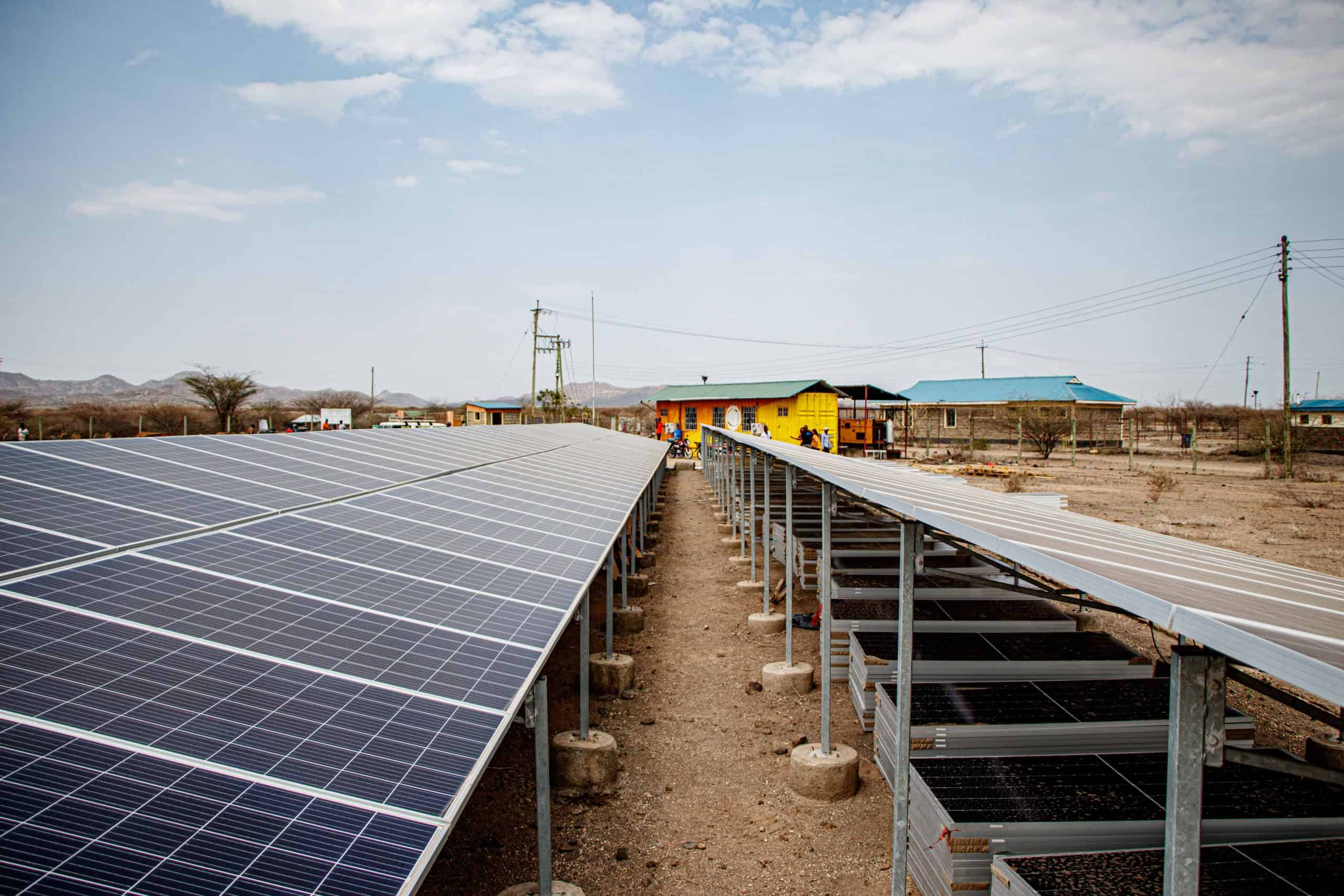Renewvia Energy Kenya is an energy company that designs and constructs solar mini grids, supplying underserved communities with reliable and affordable electricity
The business seeks to transforms lives through providing reliable, modern,safe, and affordable electricity to low income and densely populated areas that are underserved or far from the Kenya power. In Kakuma and Kalobeyei they have connected institutions such as UNCHR, World Food Programme and Norwegian Refugee Council. Through electricity connections, Renewvia Energy has brought new life in the area from enabling children to study at night, allowing families to connect and charge household appliances like phones, fridges and television that improves their social cohesion and exposure to connecting business to operate late in the night and use refrigerators to preserve perishable commodities.
Through the KKCF funding, the company will be expanding their capacity and increase connections in the Kalobeyei settlement area.
Visit the Renewvia website here: https://www.renewvia.com/
Company FAQs
What attracted you to the Kakuma/Kalobeyei area? Why did you choose to apply for the KKCF funding?
Renewvia’s plans for Kalobeyei Settlement commenced in 2018, and by September 2019, the company’s operations were up and running. We designed and built a 60kWp Solar mini-grid that serves over 500 residential and commercial customers. The initial design would have served 350 connections, but people’s desire for electricity connection increased exponentially beyond Renewvia’s designed capacity. Demand
has grown further since 2019, and we had been seeking additional funding to expand the mini-grid to meet this demand. The KKCF opportunity was crucial for us to expand our system, allowing more people in the camp to access electricity while maintaining our low tariffs – a possibility enabled by this kind of grant funding.
What do you look forward to doing in Kakuma/Kalobeyei? How do you see your business growing in the next 5 years? What challenges have you had to overcome?
We have always seen the huge potential for our business to grow in Kalobeyei. The sheer number of people living in the camp without access to a basic need such as electricity presents a huge business opportunity. The economic activity in the Kakuma/Kalobeyei area is also robust, with many hundreds of operational small businesses. Beyond this, we believe that with the expansion of our site, the overall economic and social development of the community will be pushed forward. Our intervention will supply an additional 2,250 customers, and we are excited to see the knock-on effects as more people gain access to a clean and affordable energy source for the first time. Our biggest challenge in the Kalobeyei community so far is linked to our inability to meet the rising demand for electricity with our current system. We are eager to expand the amount of power we can provide, in order to reach thousands of potential customers.
What are some of the foreseeable impacts in the Kakuma and Kalobeyei area following your interventions?
When the system expansion is complete, a total of about 3,000 customers, both residential and commercial, will have access to electricity from Renewvia in the Kalobeyei Settlement area. We collect
data on impact for pre- and post-connection at all of our of mini-grids, and expect to see improvements across a range of key impact areas. We measure the change and impact of having access to clean, affordable
and reliable electricity, specifically across 5 categories: Gender Equality, Productivity, Safety, Health and Business Activity. Within these 5 parameters, we have identified and are tracking specific key
performance indicators. Among others, we believe we will see improved household and business economics, a safer and more secure environment around the area of extension, and important impacts for women and girls in time-saving during their daily activities.
What advice would you give other SMEs that are working in fragile/difficult situations, with refugees and their host communities?
First and foremost, developing a positive relationship and understanding with the community, local government, and other organisations working in the area, is critical. In this environment, there are a lot of activities happening and information flow and expectations can be complex. It is essential to align with all actors so that the solution being promoted is one that makes sense, given the circumstances. It also needs to be well
understood and truly desired by the community.
